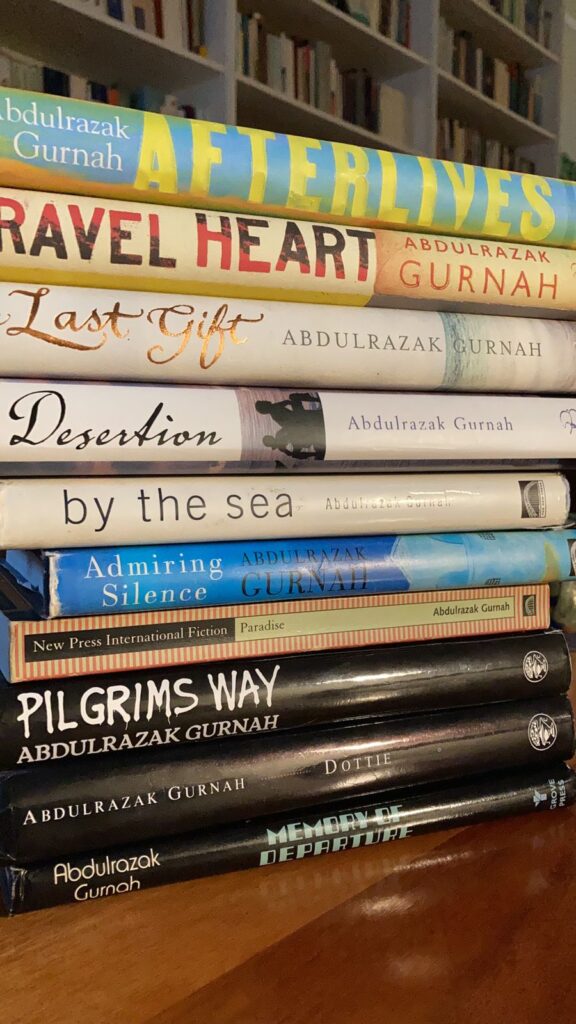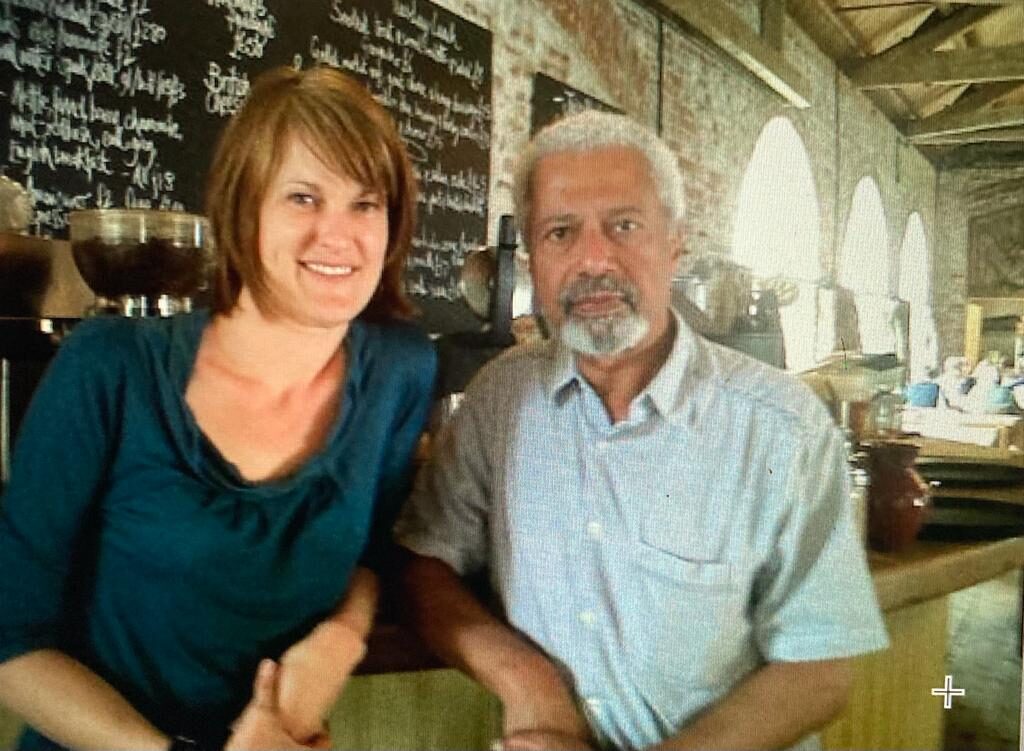
This past week, on 7 October 2021, Zanzibar-born novelist and Emeritus Professor of English and Postcolonial Literatures at the University of Kent, Abdulrazak Gurnah was awarded the Nobel Prize for Literature. Alongside the official Nobel recognition for Professor Gurnah’s body of work as an “uncompromising and compassionate penetration of the effects of colonialism and the fates of the refugee in the gulf between cultures and continents”, many around the world are celebrating and reflecting on Professor Gurnah’s achievement. Novelist Maaza Mengiste adds that, for three decades, Professor Gurnah has been “writing with a quiet and unwavering conviction about those relegated to the forgotten corners of history.”
Professor Gurnah’s achievement is received with great excitement by the Department. Our connection to both the author and his work dates back to 2008, when Professor Tina Steiner first taught undergraduate and postgraduate classes on his novels, and over the years other colleagues in the Department have also presented on Gurnah’s texts.

Gurnah has visited the Department a number of times, in addition to his residency at the Stellenbosch Institute for Advanced Study (STIAS). In April 2010, he gave the keynote address at the Zoë Wicombe conference, the first of two illustrious, major international conferences hosted by Stellenbosch at which Gurnah would partake. The second such occasion was in July 2016 at the Conference for the Association for Commonwealth Literature and Language Studies (ACLALS). In 2018, Gurnah joined STIAS as a research fellow and ran a reading group for English postgraduates, affording students and colleagues a rare opportunity to get to know an author whose work is an important fixture in the department’s undergraduate and postgraduate teaching. For some Honours students, having read Gurnah’s By The Sea in their final undergraduate year, it was the chance to meet an author some of them had recently become familiar with, and the experience may not have been any less exciting for colleagues who had taught or written about his work.
In “Nobel winner Abdulrazak Gurnah’s fiction traces small lives with wit and tenderness,” a piece published on news24 immediately after the news of Professor Gurnah’s Nobel Prize win, Professor Steiner reflects that
Gurnah, the storyteller, probes the efficacy of stories to connect people and geographies. Yet at the same time he is acutely attentive to the divisive nature of stories of certainty: of colonial domination, of patriarchal scripts, of racism, of xenophobia towards strangers from elsewhere. His work points to the way in which such certainties furnish people with a belief in the rightness of the violence they wreak on others, in the destruction of other people’s lives which they deem to matter less than their own.
In the same piece, Steiner discusses the empathy that is evident in Gurnah’s prose across his ten novels and also within his short stories. She observes that the settings of his novels, almost exclusively African (more precisely, settings along the Eastern African Swahili Coast or in Zanzibar) but for one exception, illuminate the “common occurrences” of migration and displacement faced by many in Africa and across the globe. With intermingling along the East African shores of the Indian Ocean, Gurnah’s characters often suggest “the cultural and linguistic heterogeneity of East African coastal regions and their place within the continent, the Indian Ocean world, and the globe in order to stress a common humanity.”
Considering Professor Steiner’s points, we may note that Gurnah’s work is so pivotal to the Department’s vision that he has, indeed, been recognized in our mission statement since the early 2010s:
We envisage the discipline as a series of transformative encounters between worlds and texts, a process of reading, thinking, debate and writing which is well-placed to contribute not only to our students’ critical and creative knowledge of ‘English’ as a discipline, but also to the possibilities for change in Stellenbosch, a site still marked by racial and economic disparity… novels by Chimamanda Adichie and Abdulrazak Gurnah, poetry from the Caribbean, and articles by Njabulo S. Ndebele can prompt revised recognitions of racial, cultural and gendered identities…
Finally, another observation in Professor Steiner’s piece, one that is also found in views expressed by other avid Gurnah readers like Mengiste, is Gurnah’s great sense of care for his characters, ensuring that they are documented through literature even as his other work strives towards more immediate forms of recognition for those often left unarchived. The ability to weave humour into his narratives, despite some of their harrowing aspects, is one of the many reasons Gurnah’s work remains both enjoyable as well immanently teachable. Steiner’s piece acknowledges “the subtle humour which suffuses his writing that give his stories a lightness of touch”, a skill no doubt familiar to readers and, now, to the Nobel Committee for Literature.
